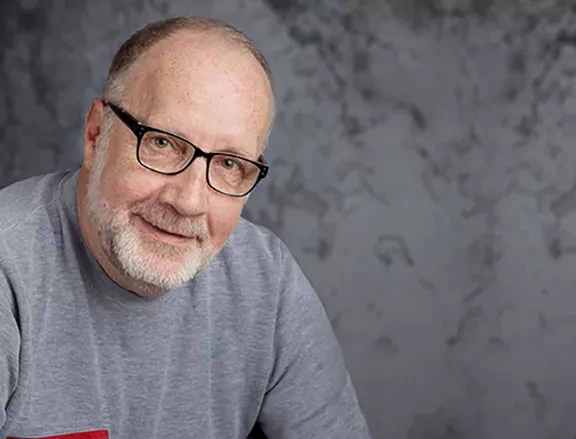Helping members through validation and respect

Published Dec. 17, 2017
What was your first impression of Face It TOGETHER?
I was apprehensive at first because I’ve always been involved in 12-step meetings. But once I learned more about what Face It TOGETHER was, I realized it was what I’d been doing to keep myself well for the past 30 years. After that, my feelings really turned around. In addition to helping others, coaching has further opened the doors to my own recovery.
What do you like most about your role as an addiction management coach?
I like that I’m able to be totally honest with my clients. I have enough respect for them, and they have enough respect for me, that I can tell them the truth. It’s great when people come back and say thank you, because it shows they really did need this and there’s some kind of difference being made.
What’s your coaching philosophy?
I’m all about validation, trust and respect. The first thing I say to someone when they come in is “You and I are equal here.” It’s all about bridging that gap with another person. And if I see something good in my clients, I let them know. I think it’s important to point out that progress and those little miracles.
If nothing else, I let people know they count. They need to know they matter, and they’re not being judged when they come see me.
How do you help clients work through trauma?
Some kind of trauma is present in almost every single client I see. I don’t ever push it before they’re ready, but I let them know I’ve been there. First, I tell them my story. I’m completely open and honest. I’ll look at them and say, “I know what it’s like, and it’s horrible. So let’s work through this and see what we find.” I come at it as a peer who’s been through it myself. Working through trauma is upsetting and uncomfortable, but it’s how people can take their power back.
How important is it for business leaders to address addiction in the workplace?
Addiction has destroyed so many lives and affected every part of society. When I think about an employer that has 45 employees, for example, it’s likely that five are suffering from the disease. Those five people aren’t producing what they need to be; they’re not meeting their true potential. So really, that company is losing a lot because of addiction. Plus, those five people are affecting the lives of their loved ones, so it’s really a major issue.
How have your past experiences influenced your message as a coach?
To this day I don’t really know what my higher power is, there are no words for it. I do know that a higher power has directed the exact right people to say the exact right things to me throughout my recovery. I know those experiences were bigger than coincidence, and they helped me stay well.
I remember those times vividly, and I try to incorporate the lessons I’ve learned in my time with clients.
